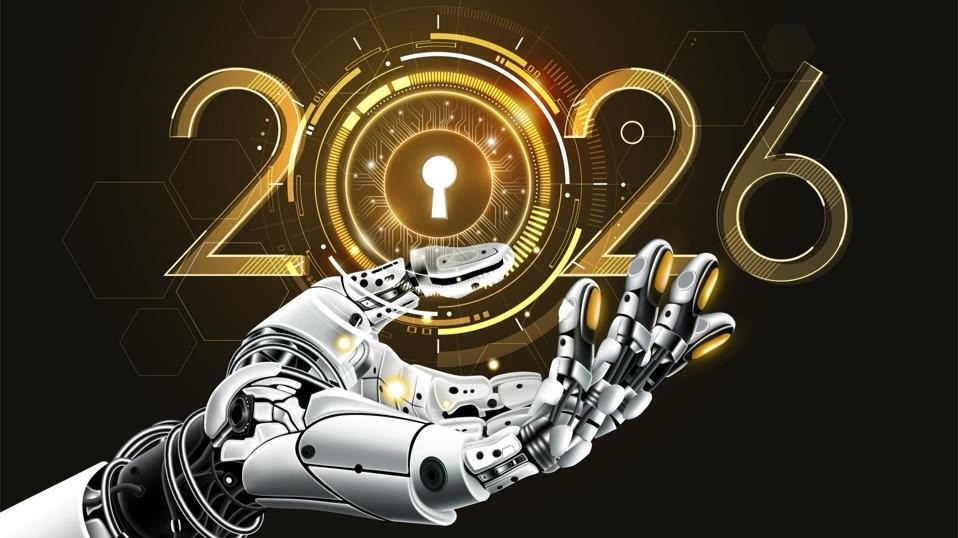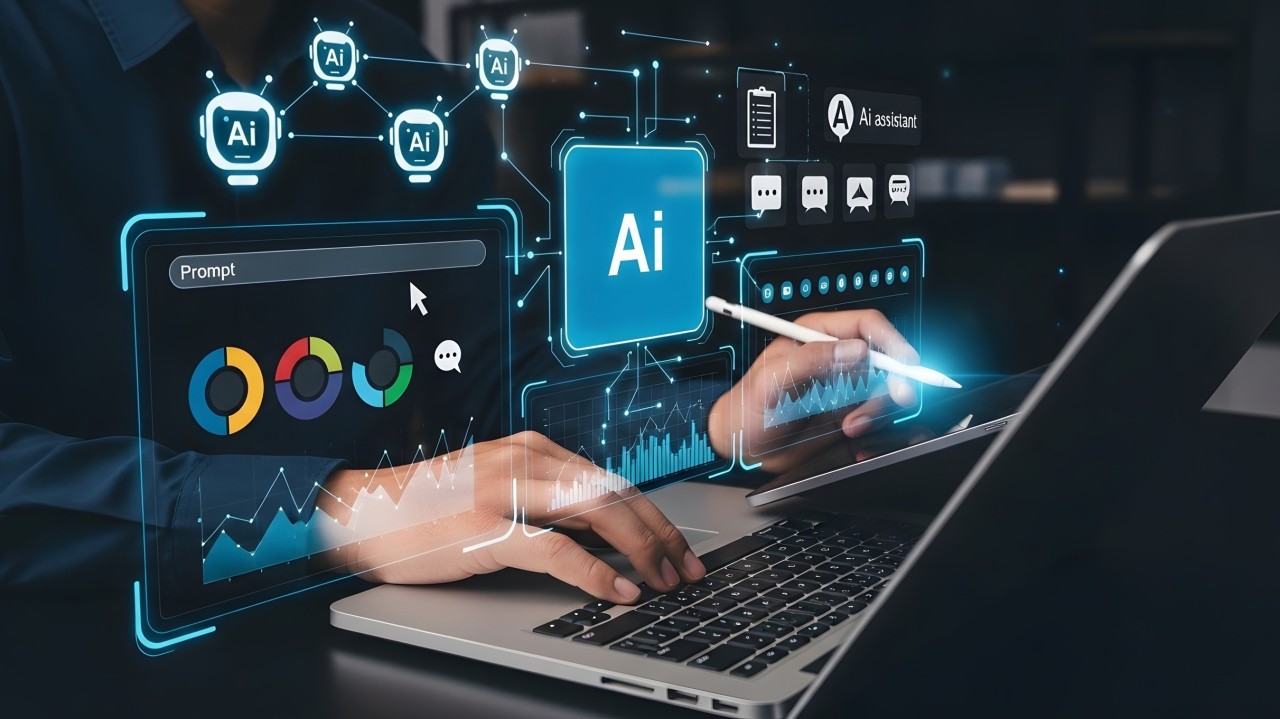The Benefits And Dangers Of Using AI In Recruitment
16 May 2022
When it comes to hiring and firing, artificial intelligence (AI) has an image problem. Many of us don’t like the idea of putting decisions that can seriously impact people’s lives in the hands of machines, particularly when we might not necessarily understand how and why they do what they do.

But what if it turns out that machines were actually capable of making decisions in a way that is fairer and less prone to prejudice and bias than decisions made by humans? For many of those working on the problem of applying machine intelligence to recruitment and HR, this is the goal. And going a step further than that, is it possible that AI can help overcome the challenges of today’s fast-changing hiring landscape? The shift to home and remote working prompted by the global Covid-19 pandemic, as well as related developments such as the “great resignation”, require HR departments to navigate and predict their way around complex and ever-changing employee behavioral patterns.
These are the type of patterns that AI excels at recognizing, understanding, and predicting. This is why Google is so good at predicting what you want to search for, and Netflix is so accurate at predicting what you want to watch next – 80% of viewing on the streaming service is apparently driven by recommendations!
Nevertheless, while we might be happy for a machine to help us choose which movie to watch next, we might feel a bit uneasy at the thought of it deciding whether we can have a job or not – or which workers a company should hire or fire.
I was reassured to learn that these are concerns that are shared by Frida Polli, the CEO and founder of Pymetrics – one of the leading AI-driven recruitment platforms. I was recently joined by Polli for a conversation in which we discussed the ethical implications of this type of technology, as well as how it is evolving to help companies understand concepts like “soft skills”. These are concepts that can be vital to understanding how well a candidate might fit a certain role but are often poorly conveyed by traditional recruitment data gathering channels – such as resumes and interviews.
Crucially, by helping organizations get a better understanding of what candidates have to offer in this regard, they can lead to less biased and more effective recruiting decisions. This is a view held not just by Polli but by one of her company's customers – Tan Moorthy, global head of education, training, and assessment at Infosys. Moorthy also joined us in the conversation.
Moorthy says, "If you look at what's going on with technology skills, the lifespan of how long they're relevant is reducing on the one hand, and then we have automation that is taking away roles that people can do.
“What that means is … you need to figure out ways in which people can coexist with machines. That’s the critical need … you have to recruit the right talent [and] it's important therefore to bring in people not based on their degrees but on their skills.”
At Infosys, this understanding of the current challenges in the employment space has led to the establishment of the Reskill and Restart program. The program is built around a free-to-use online platform that connects employers and trainers with jobseekers and potential hires based on their skills and interests rather than their backgrounds and education. So far, it has enabled hundreds of people to reskill for profitable and rewarding careers in the tech industry.
Pymetrics has played an important role in this process thanks to its innovative AI-powered employment decisioning tools.
“I completely understand the concerns around AI. It’s incumbent around tech providers like ourselves to prove we’re equitable … but once we can do that, it's critical for societies to start leveraging some of these platforms - like Reskill and Restart and Pymetrics – that can really help with these broad labor market problems”, Polli tells me.
Polli took the time to explain to me some of the principles behind the way that Pymetrics specifically works. By assessing the soft skills – such as a person’s communication and decision-making ability, as well as their empathy, generosity, or altruism – smarter decisions can be made about who might be a good fit for particular roles. This doesn’t necessarily mean that it differentiates between “good” and “bad” people, as might be implied by the fact it is assessing, for example, altruism.
“What’s amazing … is that everything can be personalized”, she says.
“I get the question all the time, ‘what are the soft skills people need?’ – but that’s not a thing – the soft skills you need to be a successful entrepreneur versus a successful accountant versus a successful CIA agent are completely different … and what’s beautiful about [AI] is that we can be very prescriptive and personalized in our recommendations.
“I might not have the soft skill profile to be an accountant because I’m biased to action and not very methodical, but … an entrepreneur – I can do that.”
This new way of assessing potential is potentially highly valuable in a world where machines will inevitably be making humans redundant in some roles – such as drivers and machine operators – and free them up to take on different, potentially more rewarding tasks.
“Gone are the 1980s… ‘oh, if you’re this, then you'll do this, and you'll be successful – and if you're not, you're out of luck … technology enables us to do that," says Polli.
Moorthy says that this type of intelligent assessment and personalized recommendation is crucial to the role Infosys hopes to play in reskilling the workforce of tomorrow.
“We have to look out for people who are in different professions – who want to make a move into technology, and create a pathway for them to get there,” he tells me.
“Recruitment will therefore have to look out for people who have … the ability and desire to learn new things … and the capability of saying ‘I transferred these skills from my last job into this profession, or this industry’. So transferrable skills will be important, and recruitment will have to constantly look out for means by which we can identify those people who carry those transferrable skills, so they can learn and become the talent of the future."
You can watch my conversation with Frida Polli, CEO and co-founder of Pymetrics, and Tan Moorthy, global head of education, training, and assessments at Infosys, here.
Related Articles
Is Autonomous Driving Ever Going To Happen?
By now, “smart” versions exist of just about every home appliance, gadget and gizmos we can think of. However, manufacturers continue[...]
AI And The End Of Progress? Why Innovation May Be More Fragile Than We Think
By now, “smart” versions exist of just about every home appliance, gadget and gizmos we can think of. However, manufacturers continue[...]
Dreamforce 2025: Why I’m Excited About Salesforce’s Agentic Enterprise Revolution
By now, “smart” versions exist of just about every home appliance, gadget and gizmos we can think of. However, manufacturers continue[...]
The Top 5 Technology Trends For 2026
By now, “smart” versions exist of just about every home appliance, gadget and gizmos we can think of. However, manufacturers continue[...]
The 7 Biggest Cyber Security Trends Of 2026 That Everyone Must Be Ready For
By now, “smart” versions exist of just about every home appliance, gadget and gizmos we can think of. However, manufacturers continue[...]
The 4 Myths Holding Back The AI Revolution, According To Nokia Bell Labs
By now, “smart” versions exist of just about every home appliance, gadget and gizmos we can think of. However, manufacturers continue[...]
Sign up to Stay in Touch!
Bernard Marr is a world-renowned futurist, influencer and thought leader in the fields of business and technology, with a passion for using technology for the good of humanity.
He is a best-selling author of over 20 books, writes a regular column for Forbes and advises and coaches many of the world’s best-known organisations.
He has a combined following of 4 million people across his social media channels and newsletters and was ranked by LinkedIn as one of the top 5 business influencers in the world.
Bernard’s latest book is ‘Generative AI in Practice’.










Social Media